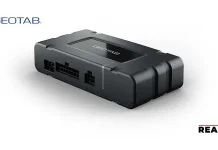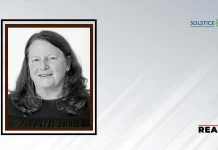Solestial, Inc, the solar energy company for space, announced that the French Alternative Energies and Atomic Energy Commission (“CEA”) has independently validated the ability of Solestial’s ultrathin silicon solar cells to effectively anneal radiation damage under sunlight at 90°C. After radiation exposure equivalent to 10 years in low Earth orbit (“LEO”), followed by annealing at 90°C under 1 sun illumination equivalent, the open circuit voltage of Solestial’s silicon solar cells dropped by only 4% and maintained 96% of its initial value. Providing that the operating temperature of the illuminated solar cells in orbit reach similar temperatures periodically, this demonstrates the feasibility of self-curing solar cells with substantially reduced radiation-induced degradation.
The French laboratory’s findings prove that Solestial’s silicon solar cells suffer dramatically less degradation, and can retain greater end-of-life efficiency, than other silicon-based solar products for space. During a 10-year mission in LEO, commonly used III-V multijunction solar panels will lose 10-15% of their beginning of life efficiency due to radiation damage alone. For terrestrial silicon solar panels, the damage will be even greater at 35-40%. Neither III-V nor terrestrial silicon have shown independent laboratory validation of such significant low-temperature annealing. Solestial’s breakthrough self-curing capability is unmatched in the space industry.
Also Read: United Airlines and Archer Announce First Commercial Electric Air Taxi Route in Chicago
“Low-temperature curing is a critical capability for silicon-based solar products in space. It was important to partner with a globally respected laboratory for independent validation of our unique technology,” said Stanislau Herasimenka, co-founder and CEO of Solestial. “The CEA is a venerated organization with a world-class laboratory; we were thrilled to collaborate with their team. We look forward to further testing with the CEA over the coming months to validate internal annealing results at even lower temperatures. We’re excited to show the space industry the myriad benefits of Solestial’s ultrathin silicon solar cells and blankets.”
Solestial’s silicon solar cells incorporate proprietary defect-engineering technology to self-cure radiation damage, resulting in minimal loss of efficiency over an operational lifetime. When coupled with other advantages of Solestial’s technology, such as readily available raw materials and the use of automated equipment, the result is more affordable, longer lasting, solar cells and blankets with virtually limitless manufacturing capacity.
SOURCE: PR Newswire



